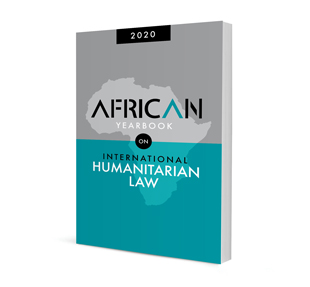The silence of Africa in the international humanitarian law debate

The silence of Africa in the international humanitarian law debate
Author: Kenneth Wyne Mutuma
ISSN: 2521-2621
Affiliations: BA Law LLM PhD, Senior Lecturer at the University of Nairobi
Source: African Yearbook on International Humanitarian Law, 2021, p. 134 – 149
https://doi.org/10.47348/AYIH/2021/a5
Abstract
International humanitarian law (IHL), as a component of international law, specifically seeks to limit the effects of warfare. The law of wars aims to limit suffering by regulating how war is fought. Despite the universal nature of most rules of IHL, Africa has been largely left behind, especially in the development of these laws and also in understanding and applying such laws on the continent. Notably, Africa has had its fair share of armed conflicts over the years, the effects of which have been devastating. However, there has been a disconnect between the development and the application of the rules of IHL in Africa. The history of Africa has led to the continent being disconnected from the development of IHL over the years. This article, therefore, aims to illustrate the gaps that exist in regard to Africa in the development of IHL as well as the exclusion of Africa’s concerns from the global IHL debate. The article considers why there is regional disengagement when it comes to IHL debates on the continent. This is done by first examining the reality of wars in Africa, which are similar to those that have occurred in other parts of the world. The article then considers the development of IHL as a body of international law that regulates armed conflicts and the gaps that exist in its application to and development in Africa. Finally, this article reflects on some of the ways of ensuring that Africa does not remain passive when engaging in the global IHL debate.
